Filter by
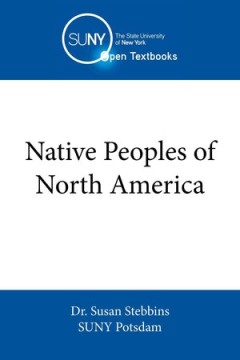
Native Peoples of North America
Native Peoples of North America is intended to be an introductory text about the Native peoples of North America (primarily the United States and Canada) presented from an anthropological perspective. As such, the text is organized around anthropological concepts such as language, kinship, marriage and family life, political and economic organization, food getting, spiritual and religious pract…
- Edition
- -
- ISBN/ISSN
- -
- Collation
- -
- Series Title
- -
- Call Number
- 970 STE n
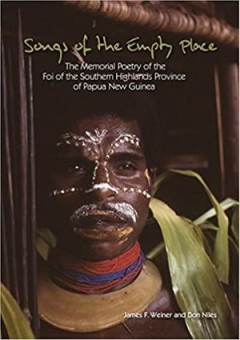
Songs of the Empty Place: The Memorial Poetry of the Foi of the Southern High…
For 31 months between 1979 and 1995, James F. Weiner conducted anthropological research amongst the Foi people in Southern Highlands Province, Papua New Guinea. This book contains the transcriptions, translations, and descriptions of the songs he recorded. The texts of women’s sago songs (obedobora), men’s ceremonial songs (sorohabora), and women’s sorohabora are included. Men turn the pr…
- Edition
- -
- ISBN/ISSN
- 9781925022230
- Collation
- -
- Series Title
- -
- Call Number
- 305.8 NIL s
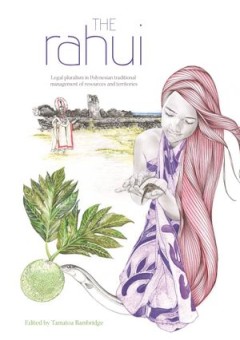
The Rahui: Legal pluralism in Polynesian traditional management of resources …
This collection deals with an ancient institution in Eastern Polynesia called the rahui, a form of restricting access to resources and/or territories. While tapu had been extensively discussed in the scientific literature on Oceanian anthropology, the rahui is quite absent from secondary modern literature. This situation is all the more problematic because individual actors, societies, and stat…
- Edition
- -
- ISBN/ISSN
- 9781925022919
- Collation
- -
- Series Title
- -
- Call Number
- 301 BAM r
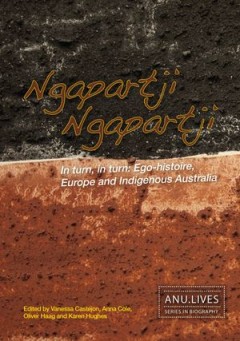
Ngapartji Ngapartji: In turn, in turn: Ego-histoire, Europe and Indigenous Au…
In this innovative collection, Indigenous and non-Indigenous scholars from Australia and Europe reflect on how their life histories have impacted on their research in Indigenous Australian Studies. Drawing on Pierre Nora’s concept of ego-histoire as an analytical tool to ask historians to apply their methods to themselves, contributors lay open their paths, personal commitments and passion in…
- Edition
- -
- ISBN/ISSN
- 9781925021738
- Collation
- -
- Series Title
- -
- Call Number
- 306 NGA n
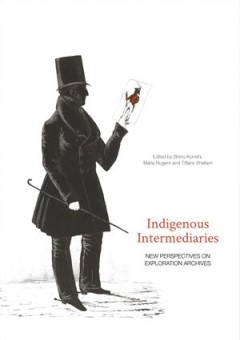
Indigenous Intermediaries: New perspectives on exploration archives
This edited collection understands exploration as a collective effort and experience involving a variety of people in diverse kinds of relationships. It engages with the recent resurgence of interest in the history of exploration by focusing on the various indigenous intermediaries – Jacky Jacky, Bungaree, Moowattin, Tupaia, Mai, Cheealthluc and lesser-known individuals – who were the guide…
- Edition
- -
- ISBN/ISSN
- 9781925022773
- Collation
- -
- Series Title
- -
- Call Number
- 301 IND i
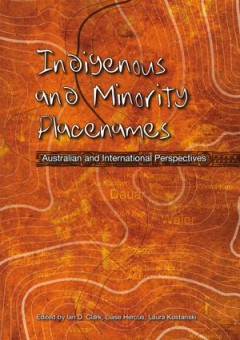
Indigenous and Minority Placenames: Australian and International Perspectives
This book showcases current research into Indigenous and minority placenames in Australia and internationally. Many of the chapters in this volume originated as papers at a Trends in Toponymy conference hosted by the University of Ballarat in 2007 that featured Australian and international speakers. The chapters in this volume provide insight into the quality of toponymic research that is being…
- Edition
- -
- ISBN/ISSN
- 9781925021639
- Collation
- -
- Series Title
- -
- Call Number
- 301 IND i
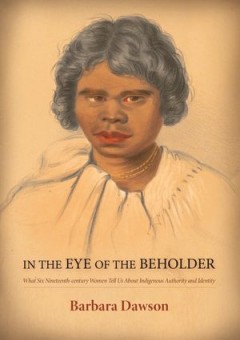
In the Eye of the Beholder: What Six Nineteenth-century Women Tell Us About I…
This book offers a fresh perspective in the debate on settler perceptions of Indigenous Australians. It draws together a suite of little known colonial women (apart from Eliza Fraser) and investigates their writings for what they reveal about their attitudes to, views on and beliefs about Aboriginal people, as presented in their published works. The way that reader expectations and publishers�…
- Edition
- -
- ISBN/ISSN
- 9781925021974
- Collation
- -
- Series Title
- -
- Call Number
- 301 DAW i
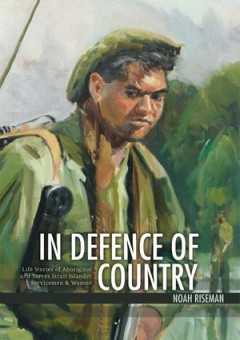
In Defence of Country: Life Stories of Aboriginal and Torres Strait Islander …
Aboriginal and Torres Strait Islander people have been protecting country since time immemorial. One way they have continued these traditions in recent times is through service in the Australian military, both overseas and within Australia. In Defence of Country presents a selection of life stories of Aboriginal and Torres Strait Islander ex-servicemen and women who served in the Australian Arm…
- Edition
- -
- ISBN/ISSN
- 9781925022803
- Collation
- -
- Series Title
- -
- Call Number
- 301 RIS d
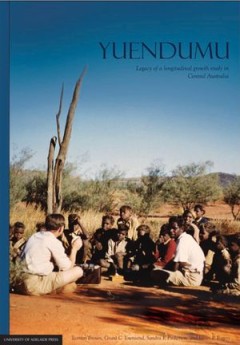
Yuendumu: Legacy of a Longitudinal Growth Study in Central Australia
This book provides a comprehensive account of a unique pioneering longitudinal study of human growth that continues to contribute to our knowledge and raise new questions 60 years after it commenced. Although over 200 scientific publications have arisen from the study, this book describes, in a single volume, the key researchers involved, the Australian Aboriginal people from Yuendumu who parti…
- Edition
- -
- ISBN/ISSN
- 9780987073006
- Collation
- -
- Series Title
- -
- Call Number
- 993 YUE y
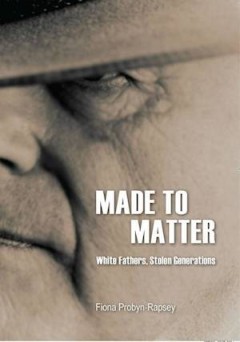
Made to Matter: White Fathers, Stolen Generations
Most members of the Stolen Generations had white fathers or grandfathers. Who were these white men? This book analyses the stories of white fathers, men who were positioned as key players in the plans to assimilate Aboriginal people by ‘breeding out the colour'. The policy was an cruel failure. It conflated skin colour with culture and assumed that Aboriginal women and their children woul…
- Edition
- -
- ISBN/ISSN
- 9781920899974
- Collation
- -
- Series Title
- -
- Call Number
- 301 PRO m
 Computer Science, Information & General Works
Computer Science, Information & General Works  Philosophy & Psychology
Philosophy & Psychology  Religion
Religion  Social Sciences
Social Sciences  Language
Language  Pure Science
Pure Science  Applied Sciences
Applied Sciences  Art & Recreation
Art & Recreation  Literature
Literature  History & Geography
History & Geography